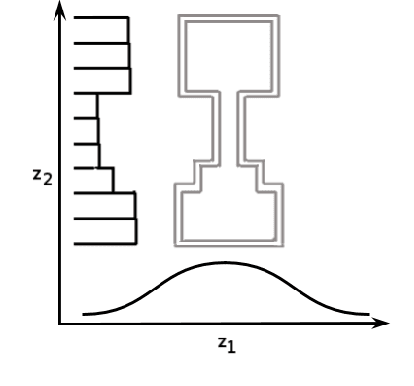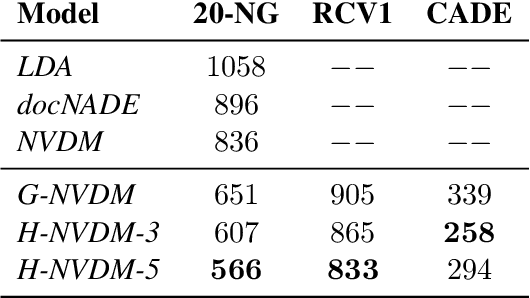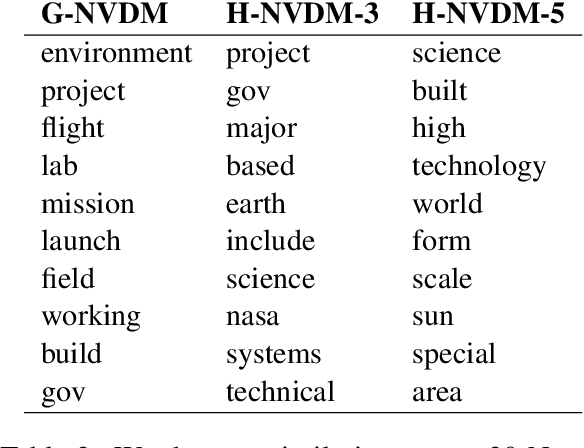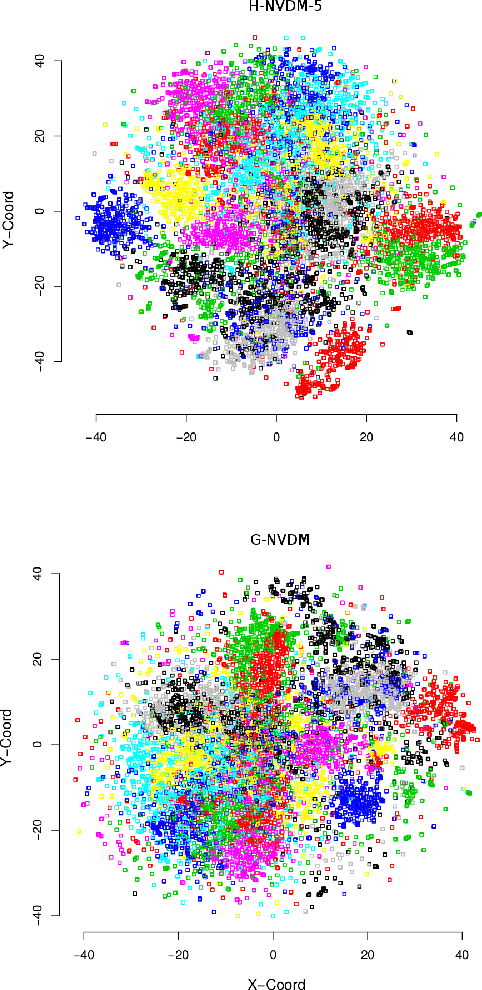Piecewise Latent Variables for Neural Variational Text Processing
Paper and Code
Sep 23, 2017



Advances in neural variational inference have facilitated the learning of powerful directed graphical models with continuous latent variables, such as variational autoencoders. The hope is that such models will learn to represent rich, multi-modal latent factors in real-world data, such as natural language text. However, current models often assume simplistic priors on the latent variables - such as the uni-modal Gaussian distribution - which are incapable of representing complex latent factors efficiently. To overcome this restriction, we propose the simple, but highly flexible, piecewise constant distribution. This distribution has the capacity to represent an exponential number of modes of a latent target distribution, while remaining mathematically tractable. Our results demonstrate that incorporating this new latent distribution into different models yields substantial improvements in natural language processing tasks such as document modeling and natural language generation for dialogue.
 Add to Chrome
Add to Chrome Add to Firefox
Add to Firefox Add to Edge
Add to Edge